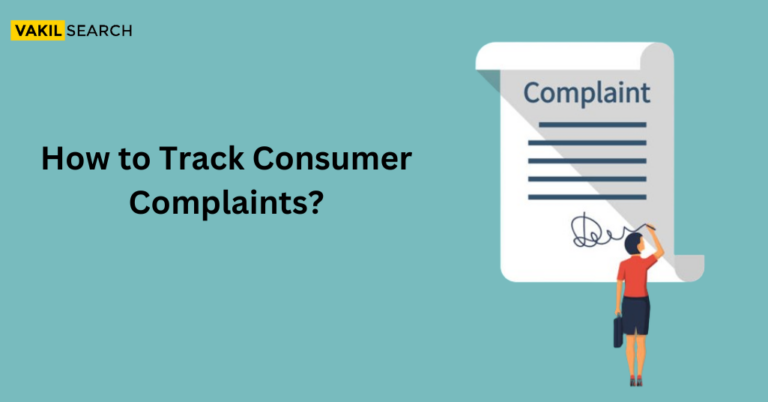Consumer court lawyers are essential for safeguarding consumer rights and resolving disputes. Dive into their role and the impact they have in upholding consumer interests.
Consumer court lawyers play a crucial role in safeguarding the rights and interests of consumers in India. Their expertise and legal acumen are instrumental in helping consumers seek justice and resolution when they encounter issues with products or services. In this article, we will delve into the responsibilities and roles of consumer court lawyers, guide you on drafting a legal notice for a consumer complaint, and explore the fundamental rights of consumers in India. Now, know about consumer court lawyer in detail.
What is the role of a consumer court lawyer?
Consumer court lawyers, also known as consumer protection lawyers, are legal professionals who specialize in handling cases related to consumer disputes. Their primary roles and responsibilities include:
- Legal Representation: Consumer court lawyers represent consumers in legal proceedings, including filing complaints, attending hearings, and presenting their cases before the consumer courts.
- Legal Advice: They provide legal guidance and advice to consumers, helping them understand their rights and the legal aspects of their cases.
- Documentation: Consumer court lawyers assist in preparing the necessary legal documentation, including drafting complaints, legal notices, and affidavits.
- Negotiation: They may attempt to negotiate a resolution with the opposing party before resorting to litigation, aiming for a quick and amicable settlement.
- Research and Analysis: Consumer court lawyers analyze the facts and legal aspects of the case, ensuring that consumers’ rights are protected.
- Representation Across Forums: They can represent consumers at different levels of consumer courts, whether it’s a district-level forum or the national commission, depending on the case’s value.
- Adherence to Legal Procedures: Consumer court lawyers ensure that the legal procedures are followed correctly, helping consumers avoid procedural pitfalls.
In essence, consumer court lawyers are advocates for consumer rights, guiding consumers through the legal process and fighting for their interests in disputes with businesses and service providers.
How do you draft a legal notice for a consumer complaint?
Drafting a legal notice is often the first step in initiating a consumer complaint. Here’s a simplified guide to creating an effective legal notice:
- Heading: Begin with a legal notice heading that includes your name and address, as well as the name and address of the recipient (the business or service provider).
- Introduction: Clearly state that you are writing the legal notice to address a consumer complaint and provide a brief introduction of the issue.
- Facts and Circumstances: Describe the facts and circumstances of the dispute, including details about the product or service in question, any relevant dates, and your grievances.
- Relief Sought: Specify the relief or compensation you are seeking as a resolution to the dispute. Be clear and concise in articulating your expectations.
- Legal Basis: Refer to the relevant consumer protection laws and provisions under which you are filing the complaint. This underscores the legal seriousness of the matter.
- Response Deadline: Include a reasonable deadline by which you expect the recipient to respond and address your concerns. Commonly, this is 15-30 days.
- Legal Consequences: Mention that failing to address the issues within the stipulated timeframe may compel you to initiate legal proceedings.
- Closure: Conclude the legal notice by signing it and providing your contact details for further communication.
Drafting a well-structured legal notice is a critical initial step in the process of filing a consumer complaint. It serves as a formal communication to the opposing party, informing them of your intent to seek a resolution.
Consumer Rights Lawyers in India
Consumer rights lawyers, also known as consumer protection lawyers, are legal professionals who specialize in advocating for and protecting the rights and interests of consumers in India. Their primary responsibilities include:
- Legal Representation: Consumer rights lawyers represent consumers in legal proceedings, ensuring their grievances are heard and addressed before consumer courts.
- Legal Advice: They offer legal guidance to consumers, helping them understand their rights and the legal aspects of their cases.
- Documentation: These lawyers assist consumers in preparing essential legal documentation, including drafting complaints, legal notices, and affidavits.
- Negotiation: They may attempt to negotiate settlements or resolutions with businesses and service providers before pursuing legal action, seeking to resolve issues amicably and quickly.
- Research and Analysis: Consumer rights lawyers thoroughly analyze the facts and legal aspects of each case, ensuring that consumers’ rights are protected.
- Representation Across Forums: They can represent consumers at various levels of consumer courts, whether it’s a district-level forum or the national commission, depending on the case’s value.
- Adherence to Legal Procedures: These lawyers ensure that consumers follow the correct legal procedures, helping them avoid procedural pitfalls.
Consumer rights lawyers play a crucial role in the legal process, offering expertise and legal acumen to consumers who need to navigate the complex terrain of consumer protection laws and regulations.
Consumer Court
Consumer courts in India are the legal forums where consumer complaints are adjudicated. These courts are structured in three tiers based on the value of the claim:
- District Consumer Disputes Redressal Forum (DCDRF): Deals with cases involving claims up to Rs. 20 lakhs.
- State Consumer Disputes Redressal Commission (SCDRC): Handles cases where the claim amount exceeds Rs. 20 lakhs but is less than Rs. 1 crore.
- National Consumer Disputes Redressal Commission (NCDRC): The highest level, it has authority over cases where the claim amount exceeds Rs. 1 crore.
Consumer courts play a critical role in resolving consumer disputes, ensuring that consumers receive a fair hearing and timely resolution for their grievances.
Right to Safety
The “Right to Safety” is a fundamental consumer right that guarantees consumers access to goods and services that are safe and non-hazardous. This right implies that products and services must adhere to safety standards, ensuring that consumers are protected from any potential risks to their health and well-being.
In the context of consumer rights, “safety” encompasses several aspects:
- Product Safety: Consumers have the right to expect that products they purchase, whether they are everyday household items or complex machinery, are safe to use. Manufacturers are obligated to adhere to safety regulations and ensure their products do not pose risks to consumers when used as intended.
- Service Safety: This right extends to services as well. When consumers utilize services, they should not be exposed to harm or danger. For example, services such as healthcare, transportation, or even online platforms must maintain a safe environment for consumers.
If a product or service is found to be unsafe, consumers have the right to complain and seek resolution through the appropriate legal channels, including consumer courts. Consumer rights lawyers play a vital role in helping consumers navigate these legal processes and seek justice when their safety is compromised.
Right to Information
The “Right to Information” is another crucial consumer right that empowers consumers to receive complete and accurate information about the products and services they intend to purchase. This right ensures that consumers can make informed decisions before committing to a purchase.
Key aspects of the “Right to Information” include:
- Price Transparency: Consumers have the right to know the price of products or services, including any additional charges, taxes, or fees. Pricing information should be clear and easily accessible.
- Quality and Quantity Information: Consumers should receive detailed information about the quality and quantity of products. This includes information about ingredients, specifications, and any certifications or standards.
- Standard Compliance: Products and services must adhere to established standards and regulations. Consumers have the right to information about whether a product or service complies with these standards.
Consumer rights lawyers help consumers ensure their right to information is upheld, especially when businesses fail to provide accurate or complete information, which can lead to legal disputes.
Right to Choose
The “Right to Choose” is a fundamental consumer right that grants consumers the freedom to make choices from a variety of products and services offered in the market. This right underscores the importance of consumer autonomy in making purchasing decisions.
Key aspects of the “Right to Choose” include:
- Competitive Market: A competitive market ensures that consumers have a range of options to choose from, promoting innovation and competitive pricing.
- No Forced Choices: Consumers should not be forced into accepting any particular product or service. They must have the liberty to make informed choices based on their preferences and needs.
- Variety and Diversity: Businesses must offer diverse products and services, catering to various consumer needs and preferences.
The “Right to Choose” is a cornerstone of consumer protection, ensuring that consumers have the freedom to select what best suits their requirements.
Right to Be Heard
The “Right to Be Heard” guarantees that consumers have a voice and that their complaints and concerns are heard, understood, and addressed by relevant authorities and businesses. This right empowers consumers to seek redressal when they encounter issues with products or services.
Key aspects of the “Right to Be Heard” include:
- Complaint Mechanisms: Businesses must establish mechanisms for consumers to file complaints and have their concerns addressed.
- Timely Resolution: Consumers have the right to expect a timely and effective resolution to their complaints.
- Access to Consumer Courts: If a resolution is not achieved through the company’s complaint mechanism, consumers have the right to escalate their grievances to consumer courts.
Consumer rights lawyers play an essential role in helping consumers exercise their right to be heard by providing legal guidance and representation in consumer disputes.
Conclusion
In the domain of consumer protection in India, consumer court lawyers serve as invaluable advocates, guiding consumers through the complex legal landscape and ensuring their rights and interests are protected. These legal professionals are instrumental in helping consumers seek justice and resolution when they encounter issues with products or services.
Understanding the importance of consumer rights is fundamental to the Indian consumer protection framework. The four key consumer rights – the right to safety, right to information, right to choose, and right to be heard – form the foundation of consumer protection laws. These rights empower consumers to make informed decisions, exercise autonomy in their choices, and seek redressal when issues arise.
Consumer rights lawyers in India play a significant role in upholding these rights and ensuring that consumers receive the necessary support and representation when their rights are violated. From offering legal advice to representing consumers in legal proceedings, these lawyers are essential in the fight for consumer justice.
As a consumer in India, being aware of your rights and having access to experienced consumer rights lawyers is essential in navigating the complex world of consumer protection. If you ever find yourself in a dispute with a business or service provider, remember that you have the right to safety, information, and choice and to be heard. Seek the guidance of a consumer court lawyer to ensure that your consumer rights are upheld and protected.
In conclusion, consumer court lawyers and consumer rights together form a robust framework for protecting the interests of consumers in India. By understanding and asserting your rights, you can make informed choices and seek resolution when necessary, ensuring that your consumer experience is fair and just. If you have any further questions or require legal assistance, don’t hesitate to reach out to a qualified consumer rights lawyer who can guide you through the process and help protect your rights as a consumer.
Also Read:










